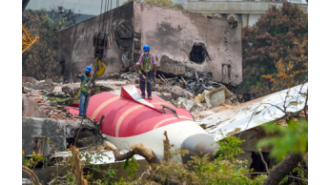Teachers were deeply affected by Ofsted evaluations, but now they can finally relax.
Previous school waited 12 years for inspections, dropped from Outstanding to Requires Improvement.

From my own experiences, I have come to realize the fundamental flaws of Ofsted. It seems that they have decided to drop their one-word judgments, and as a senior leader of a secondary school in Cambridgeshire, I am pleased with this decision. The idea of summing up the complex and intricate workings of a school with a single word has always been useless to educators, and they openly admit that it tells parents nothing about what truly goes on inside the school. It doesn't give any insight into the curriculum, pastoral care, community, or values of the school.
My personal experiences with Ofsted have highlighted their flaws. A few years back, two local secondary schools where I worked were inspected in the same summer term. One was given an Outstanding rating, while the other was marked as Requires Improvement. However, the subsequent GCSE results showed that the Requires Improvement school had actually outperformed the Outstanding one. Yet, due to their initial rating, the Outstanding school was chosen as the lead for a newly-formed Multi-Academy Trust with a large annual funding, while the Requires Improvement school spent the next few years fighting off takeover attempts. This year, both schools were re-inspected, and the judgments were switched. This goes to show that the single-word judgments can change in the short-term, but they can have long-term consequences on funding and plans.
But the problem doesn't only lie in the judgments themselves, it's also the process of inspection that is harrowing for teachers. The unpredictability and the feeling of having no control over the outcome can be daunting. As a school leader, the judgment defines your career, and you never know when it will come. At my previous school, we waited 12 years between inspections and went from Outstanding to Requires Improvement. And when it does come, you never know what the focus will be on. You are given guidance the day before, but that can change at any moment, and you are expected to be prepared. This results in teachers spending countless hours preparing for every possible scenario, and this work is repeated every term to ensure it's up to date. And in the end, it all comes down to a one-word, subjective judgment made by one lead inspector on one day, based on a generic set of guidelines that can be interpreted differently every time. This judgment can have no impact on students, but at worst, it can have a detrimental effect as teachers are forced to spend months, even years, trying to anticipate the inspection instead of focusing on their students.
For school leaders like myself, this judgment not only defines the school but also the entire community. An Outstanding rating can attract better teachers and drive up house prices, making it difficult for disadvantaged families to live in the area. On the other hand, an Inadequate rating can perpetuate the cycle of wealthier students receiving better education, while their disadvantaged peers are left behind. These one-word judgments are also devoid of context, and the implication is that the school leaders are solely to blame. But the truth is, external factors such as funding cuts, surging cost of living, and COVID have a significant impact on a school's performance. Plus, the performance of one particular cohort of students should not define the overall success of the school. And let's not forget the toll it takes on teachers. The suicide of Ruth Perry was a tragic reminder of the personal cost of this system. I, myself, have turned down a promotion and opted for a demotion due to the pressure of an imminent inspection. It's no wonder that many experienced educators have decided it's not worth sacrificing their personal lives and well-being for a public failure.
I have often questioned whether it's worth staying in this profession, and the announcement of dropping one-word judgments has sparked some hope. But as I return to preparing for the upcoming term, I can't help but see the analogy between Ofsted and teaching. The headlines about the change generate a lot of attention, but the actual work of educating continues regardless and is often overlooked by parents and the government.
The new assessment framework, introduced by the previous government, focuses on four subcategories: quality of education, behavior, leadership, and personal development. This shift towards the right things is a step in the right direction, as it allows for different judgments for different areas of the school. For example, a school may have Good student outcomes but may still be marked as Requires Improvement in other areas. But what's more important is the discussion about how these ratings link to wider societal conditions. How will the new government work with schools to address failings? How can Ofsted work with individual schools to identify and address issues? We will have to wait until next September when the 'Report Cards' system is implemented to see the real impact of this change. But if we can get it right, the benefits for teachers, parents, students, and society as a whole could be immeasurable.
Let's hope that this is just the first step towards a fundamental overhaul of how we assess education. We need a system that is based on long-term partnerships between schools, leaders, and the government, with the common goal of improving the lives of children. A well-funded, respected, and effective education system is the foundation of a successful society. Unfortunately, the current inspection system does not support this. Instead, it adds to the societal failings that schools are trying to address. Do you have a story to share? Please do so in the comments below.










